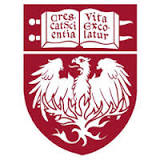Comparing the Outcomes Between Rotator Cuff Repair With and Without Suprascapular Nerve Decompression
| Status: | Recruiting |
|---|---|
| Conditions: | Orthopedic |
| Therapuetic Areas: | Orthopedics / Podiatry |
| Healthy: | No |
| Age Range: | 18 - Any |
| Updated: | 12/7/2016 |
| Start Date: | January 2015 |
| End Date: | June 2018 |
| Contact: | Lewis L Shi, MD |
| Email: | lshi@bsd.uchicago.edu |
| Phone: | 773-795-3583 |
Will Routine Suprascapular Nerve Release During Arthroscopic Rotator Cuff Repair Improve Patient Outcomes?
The purpose of the study is to compare the differences in outcome between the traditional
rotator cuff repair surgery and rotator cuff repair with suprascapular nerve decompression
surgery.
rotator cuff repair surgery and rotator cuff repair with suprascapular nerve decompression
surgery.
The suprascapular nerve is intimately related to the function and likely recovery of the
rotator cuff musculature. Retracted rotator cuff tears have recently been shown to effect
both the physical path in which the suprascapular nerve travels, as well as its physiologic
function.
This study will be a randomized control trial with long term follow up that will add to and
elaborate on the positive outcomes reported in other trials. Patients that have a rotator
cuff tears with greater than or equal to 1 cm of retraction that have failed conservative
treatment and require operative repair will qualify for the study. They will be randomized
into two arms: In one arm, patients will undergo suprascapular nerve release immediately
after their rotator cuff repair; they will be compared to patients that have rotator cuff
repair with no release of the nerve. Post operatively, at different time intervals, patients
will be expected to fill out multiple standardized, well established surveys that assess the
patients pain level and shoulder function.
rotator cuff musculature. Retracted rotator cuff tears have recently been shown to effect
both the physical path in which the suprascapular nerve travels, as well as its physiologic
function.
This study will be a randomized control trial with long term follow up that will add to and
elaborate on the positive outcomes reported in other trials. Patients that have a rotator
cuff tears with greater than or equal to 1 cm of retraction that have failed conservative
treatment and require operative repair will qualify for the study. They will be randomized
into two arms: In one arm, patients will undergo suprascapular nerve release immediately
after their rotator cuff repair; they will be compared to patients that have rotator cuff
repair with no release of the nerve. Post operatively, at different time intervals, patients
will be expected to fill out multiple standardized, well established surveys that assess the
patients pain level and shoulder function.
Inclusion Criteria:
- Reparable full thickness supraspinatus and or infraspinatus rotator cuff tears
regardless of retraction
Exclusion Criteria:
- Patients less than 18 years of age
- Irreparable rotator cuff tears
We found this trial at
2
sites
Evanston, Illinois 60201
Principal Investigator: Jason L Coh, MD
Phone: 847-570-2825
Click here to add this to my saved trials
5841 S Maryland Ave
Chicago, Illinois 60637
Chicago, Illinois 60637
(773) 702-1000

Principal Investigator: Lewis L Shi, MD
Phone: 773-795-3583
University of Chicago Medical Center The University of Chicago Medicine has been at the forefront...
Click here to add this to my saved trials